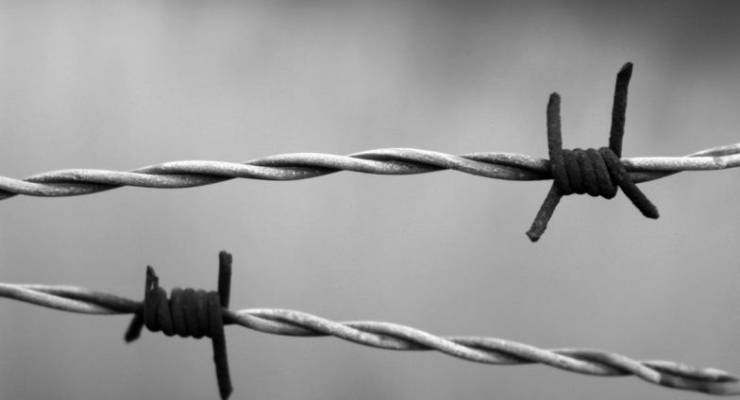
It appears that neither a government overcharging scandal, nor a seemingly endless list of alleged human rights abuses will hamper government enthusiasm for private security giant Serco.
Australia accounts for 20% of Serco Group’s profit, and last year, the “high-risk” UK outsourcer won a $1.5 billion, 20-year contract to operate the planned Grafton mega-jail. In August, the Queensland government announced that male inmates at the Serco-run Southern Queensland Correctional Centre (SQCC) would be rehomed to make room for female prisoners. With a current population of 267, the SQCC is Serco’s first women’s prison anywhere in the world.
Serco’s Australian outfits
Serco already operates Australia’s onshore immigration detention centres, like Villawood and Yongah Hill, and Christmas Island’s processing centre. They also run several correctional facilities, including Australia’s largest, Acacia prison, in Western Australia. Just last month, prison officers described Acacia as a “powder keg waiting to explode”, citing overcrowding and severe understaffing (as few as 83 officers to 1400 prisoners). Staff corruption is also a serious issue, with Acacia officers charged last year for smuggling drugs and sexual misconduct.
While a Queensland Corrective Services’ (QCS) spokesperson has told Crikey that the new SQCC women’s facility has “alleviated overcrowding … allowing improved access to health, vocational and support services”, Debbie Kilroy of Sisters Inside, a prisoner’s rights group, doesn’t believe it properly addresses Queensland’s heaving prison system. “The government and Serco keep telling us that they want to reduce the prison population, but why would we believe that? This is a corporation — if they reduce numbers, they lose money,” she says.
QCS announced in June that the Palaszczuk government was “pausing consideration” on the contracts regarding both of Queensland’s privately-operated prisons, pending the outcome of the Crime and Corruption Commissions’ Taskforce Flaxton, which is currently investigating corruption in corrective services facilities.
Global outrage
In 2015, Serco had their contract at New Zealand’s Mt Eden prison revoked (and were later fined NZ$8 million), after videos of an inmate “fight clubs” emerged on social media. A 2016 report into the facility uncovered rampant corruption (“freely available” drugs and mobile phones smuggled in by staff) and long periods where prisoners were left unsupervised. While the New Zealand government seems to have lost confidence in Serco, the NT state government doesn’t appear concerned — it just appointed former Serco head of operations Scott McNairn as its Corrections Commissioner.
When it comes to women in custody, Serco’s performance warrants additional concern.
“You just have to look at [UK immigration detention centre] Yarl’s Wood” says Kilroy. The myriad of allegations from detainees at Yarl’s Wood run a disturbing gamut from racist verbal abuse, to the inhumane treatment of pregnant detainees, to sexual violence. Despite Serco having taken action against 28 members of Yarl’s Wood staff since 2007, the Home Office refused to disclose any instances of sexual violence, for fear they would “prejudice” Serco’s “commercial interests”.
An investigation conducted in 2016 found “no endemic culture of abuse”, but discovered issues with staff capacity, training and proportion of staff at the facility. Despite this finding, ex-detainees continue to argue against the “inhumane treatment” they experienced at Yarl’s Wood, while hunger strikes continue inside.
Indigenous incarceration
Australia has a higher rate of prisoners in privately-run jails than any other country in the world, and there is a wealth of evidence to demonstrate that these prisons are increasingly filled with society’s most vulnerable. Aboriginal and Torres Strait Islander people are vastly overrepresented in the criminal justice system and their rate of incarceration is has grown by 41% in the last decade, with Aboriginal and Torres Strait Islander women now the fastest growing prison population.
“Prisons have become a pipeline for marginalised people, as successive governments have cut more and more public services, rather than dealing with issues like homelessness, poverty, mental illness and drug addiction,” says Kilroy.
While Sisters Inside raise concerns about private corporations like Serco, “hiding behind commercial-in-confidence”, a 2016 Queensland Audit Office review found that private operators’ were monitored by QCS at a “more detailed level” than government-run prisons, and that Queensland’s private prisons are “realising significant cost savings while providing a level of service commensurate with publicly-run prisons”.
However, a study conducted by University of Sydney in the same year recommended that “no further privatisations take place” until an appropriate level of information regarding the operation of private facilities is made available to policy makers and the public, particularly regarding those most effected by the sector — staff and, most importantly, prisoners.







Once again the Laberal (Labor & Liberal) parties continue to put a fast buck ahead of any sense of decency or conscience.
Serco will be running a nice shiny new prison “the largest in Australia” at Grafton in northern NSW. The old one was notorious for the “Grafton biff” used to welcome new inmates. Good to see tradition being honoured.
Government needs to outsource the job of grinding the boot into the faces of the poor and disenfranchised and then taking the flak. Serco does the job adequately, and at a good price.
“Lazy government at shirk.”
As appalling as Serco is (here & abroad) how about outsourcing government in toto – it could hardly do worse.
Government would do a lot better and a lot more cheaply. That really does matter. However much you can ignore the lower orders, such things as capital city congestion affects everyone in them. Rather than do anything about it, trumbull gifted $150 BILLION in tax giveaways over the next decade to make sure that congestion and many other repairable problems continue.